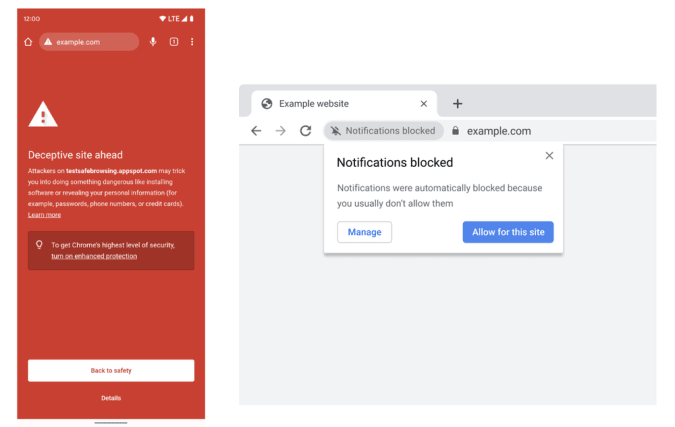Google says it used machine learning to massively improve Chrome’s phishing detection
Google says it used machine learning to massively improve Chrome’s phishing detection
The company is trying to build a safer, more useful browser with the help of ML.

Google has long been employing machine learning to improve its products, including Chrome. The company says it has been able to make the browser safer to use. In March, Google rolled out a new on-device machine learning model that’s able to detect 2.5 times more potential phishing attacks and possibly malicious sites than the previous model. That should help protect users and their data.

The company is also tackling annoying requests by certain websites to send you notifications. They can be useful for sites you want to receive updates from, but they’re often just irritating. Chrome is already able to predict when a user won’t grant a website permission to deliver page notifications and then block them automatically. The next version of Chrome will have an ML model that can handle these predictions on your device.
Google is also planning to use machine learning to make the Chrome toolbar more useful depending on what you’re doing at a given moment. It might highlight a voice search option if that’s something you do regularly or add a sharing option if you tend to catch up on news while on public transit and send links to your friends. It’s not the biggest update in the world, but it could prove a handy timesaver for the things you most commonly do in certain circumstances. You’ll be able to tweak the toolbar actions manually as well.

(30)



